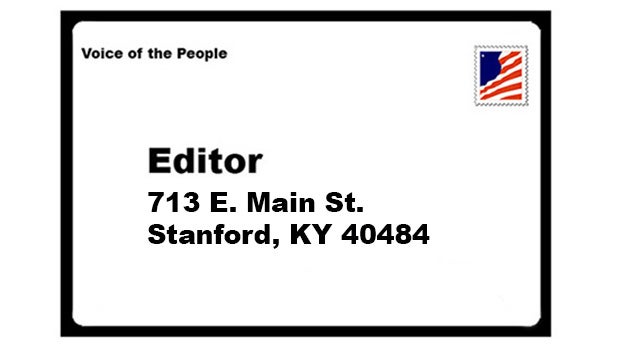Monday marked 150th anniversary of Fourteenth Amendment
Published 1:15 pm Thursday, July 12, 2018
By RAYMOND M. BURSE
Guest columnist
After having fought a civil war, on July 9, 1868, these United States of America took action to eradicate the moral indignation and the despicable practice of slavery in which people of color — human beings — were subjected to unspeakable maltreatment.
The Fourteenth Amendment to the United States Constitution was adopted by Congress on June 13, 1866, and ratified by state legislatures in three-fourths of the several states by July 9, 1868 (and by the Commonwealth of Kentucky in 1976). The Amendment served as the foundation of change for the newly freed slaves and continues to this date to protect, through great struggles, the rights and privileges of all U.S. citizens.
The amendment abrogated the Supreme Court’s opinion in Dred Scott v. Sanford, which held that freed slaves and those of African descent were not U.S. citizens entitled to the rights enjoyed by U.S. citizens. It also eviscerated the “Three-Fifths Compromise” provision of the U.S. Constitution.
The amendment granted full citizenship to “All persons born or naturalized in the United States,” including former slaves. It further prohibited states from making or enforcing laws that abridge the privileges or immunities of U.S. citizens and commanded that states shall neither deprive any person of life, liberty or property, without due process of law, nor deny any person equal protection of the law.
The amendment gave to Congress the power to enforce the civil rights afforded to all Americans in the Constitution for the first time, including former slaves. It made sure that the states guaranteed all people born or naturalized in the U.S. the rights provided in the Bill of Rights.
The Fourteenth Amendment is foundational to all rights enjoyed by every American. It changed the Constitution from a document which allowed slavery into a guiding light for freedom, democracy and equality. The Amendment is the legal basis for countless Supreme Court decisions protecting civil rights, including the right to vote, the right to an equal education, the right not to be discriminated against in employment, the right to equal and fair housing, the right to equal pay, the right to marry the person of your choice and the right of a woman’s choice over her own body.
The Fourteenth Amendment is the most litigated provision in the Constitution and in American history. Recent examples include the Voting Rights Act, in which the pre-clearance provision for changes in voting laws in states, districts and counties with a history of voter suppression, intimidation and discrimination was stricken, the allowance of voting to proceed this year in states where trial courts had found discriminatory purpose, intent and impact in laws drawn with precision to curtail and/or to suppress the vote and the allowance of the systematic purging of voter rolls for a variety reasons, none related to the death of the voter.
On July 9, we recognized the 150th anniversary of the ratification of the Fourteenth Amendment. All citizens are encouraged to recognize this landmark in time. African-American citizens and others who are devoted to the principles of liberty and equality should mark this 150th anniversary.
The Fourteenth Amendment’s ratification on July 9, 1868, has special meaning as it sets forth those indelible rights that were obtained by struggles of so many who were trying to make this a better America by making it a more inclusive nation.
We should commemorate this date by engaging in civic engagement and programs to educate the public and reaffirm the original intent and purpose of the Fourteenth Amendment, including the provisions regarding birthright citizenship and equality before the law.
In the words of the late Supreme Court Justice Thurgood Marshall in noting the effect of the Fourteenth Amendment, “While the Union survived the Civil War, the Constitution did not. In its place arose a new, more promising basis for justice and equality, the 14th Amendment … guaranteeing equal protection of the laws.”
Raymond M. Burse is currently the general counsel for the Kentucky Conference of NAACP Branches and the Louisville Branch NAACP. He served twice as the President of Kentucky State University.





